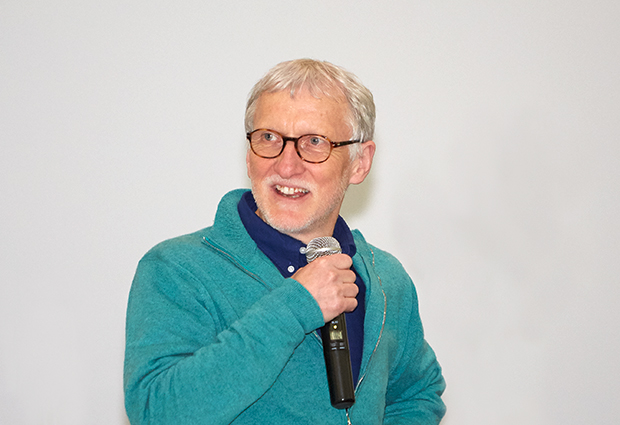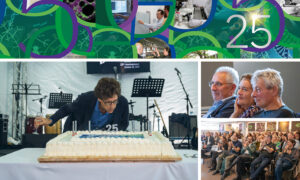
The search for EMBL’s next Director-General
Iain Mattaj talks about the search for his successor as leader of Europe’s flagship laboratory for the life sciences

Imagine taking the helm of one of the world’s most respected basic research organisations: would you crumble or thrive in a role so formidably demanding, unpredictable, influential and accountable? After over a decade as EMBL Director-General, Iain Mattaj is approaching the end of his mandate and the hunt for his successor is on. He talks about the search and selection process and the must-have qualities required to steer the Laboratory forward.
What is the process for finding the new Director-General?
The search is managed by a committee led by the Chair of EMBL Council, comprising members of Council, our Scientific Advisory Committee, the Chair of EMBO Council, and a small number of selected individuals. Candidates will be canvassed both through advertising and nominations to the search committee. The chosen individual must be approved by EMBL Council but will be a very senior and visible scientist, and that makes it uncertain how quickly they will be able to join EMBL. From my side, I’m very flexible about timing – the most important thing is that we find and help establish an excellent candidate.
The candidate has to be a strong scientific leader, respected by the internal and external life science community
With a three-year recruitment and handover timeline, how important is timing?
One of the most important parts of the job, and the best chance as Director-General to influence the shape of the Laboratory, is developing and implementing the successive five-year scientific programmes. Given the complexity of EMBL, it is important that the Director-General gains knowledge of the institute before developing their plan. The next programme runs from 2017 till 2021, so assuming office in January 2019 is ideal in this respect.
What are the key attributes for an EMBL Director-General?
The candidate has to be a strong scientific leader, respected by the internal and external life science community. They should also be a competent administrator, a diplomat and good listener, capable of communicating effectively with the scientific community, staff at all five sites, EMBL Council and member states.
What are the challenges and opportunities for the next Director-General?
There are always exciting scientific opportunities in the life sciences and potential for new focal areas for EMBL to identify and pursue. The challenge is to frame EMBL’s goals in such a way that explicitly demonstrates our added value; to show that the Laboratory brings something extra to European life science that would be difficult or impossible for national bodies to achieve. EMBL is an incredibly important institution in Europe and globally, and bears a responsibility to its community to be collaborative and defend the requirement for infrastructure, training and technology development necessary for groundbreaking basic research. EMBL has a freedom of scope that is unusual; it is not without constraint, but we have the privilege to shape accomplishments on a far-reaching world stage.


